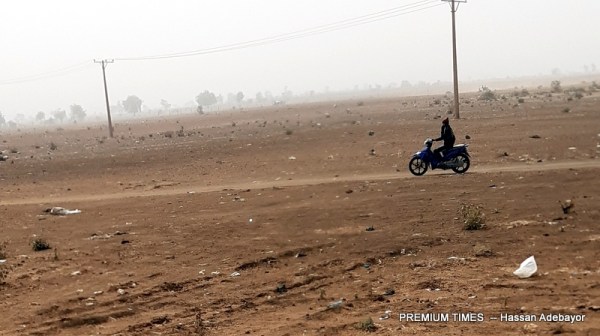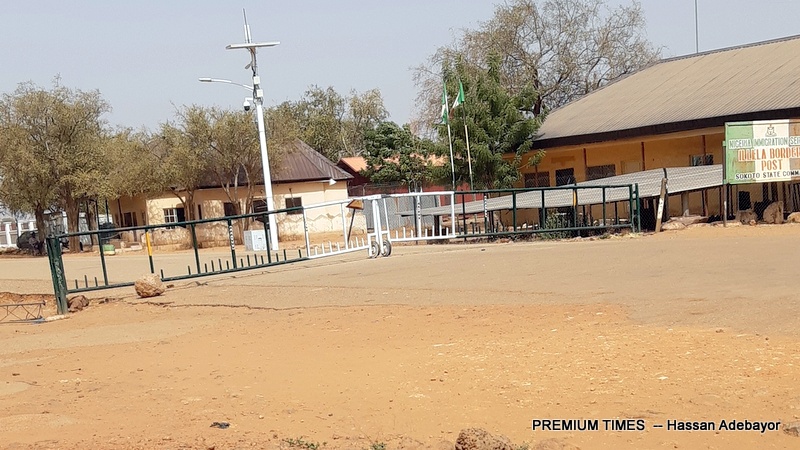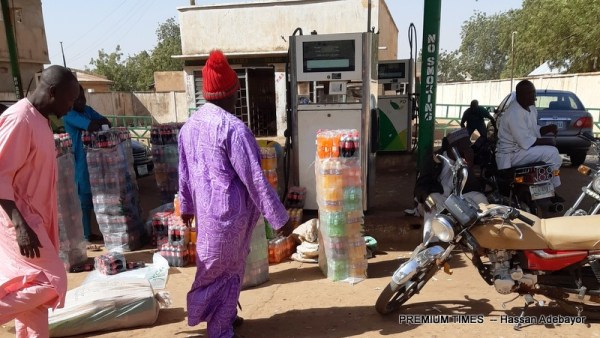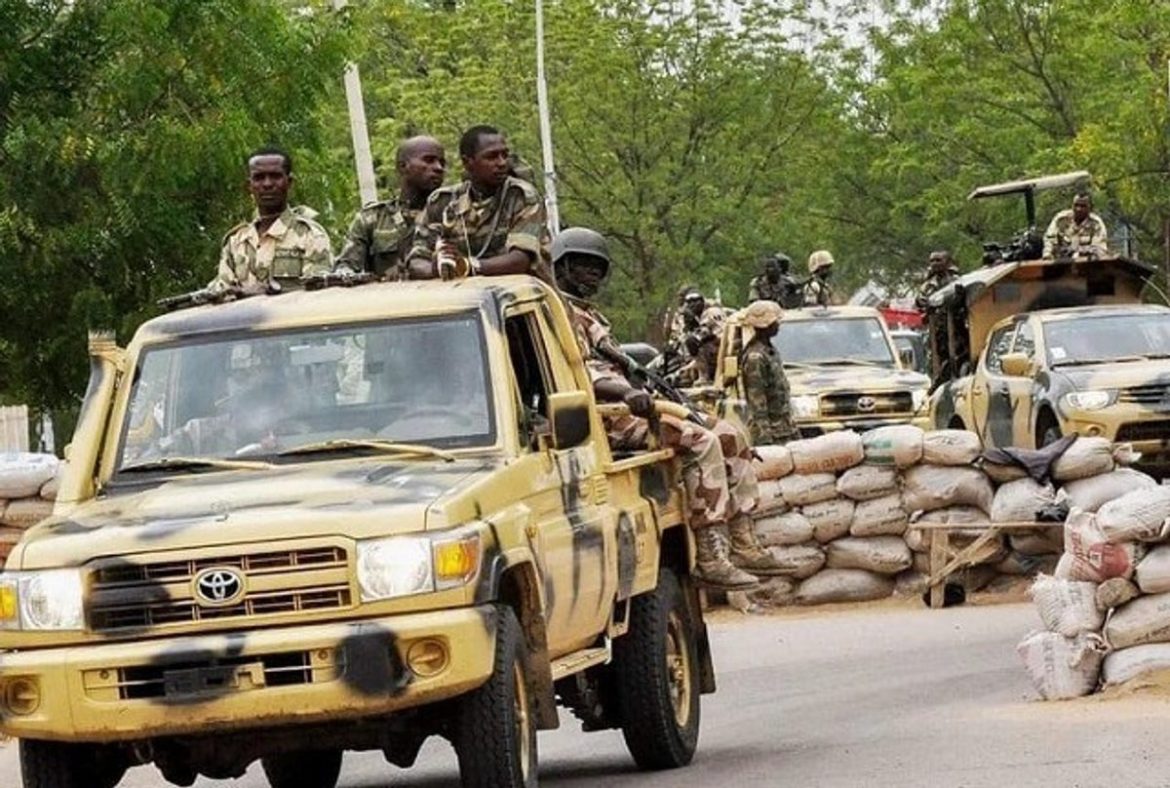A Forte Oil retail station is the last of such service facility to Nigeria’s Illela, Sokoto State border with Niger Republic. The station is now closed following a custom policy banning the supply of petroleum products to stations within 20 kilometres of Nigeria’s land borders.
Nevertheless, it is a hub of activity, serving an inverted purpose.
One January morning, dry and cold, packs of Bigi juice were being arranged in tens in sacks, and 20-litre cans containing petrol were there also. Despite the official closure of Nigeria’s land borders, these goods would be transported for higher margins to Kwani in Niger Republic following irregular routes.
Premium Times investigation shows that smugglers are still able to engage their illicit transborder trade relying on okada riders and compromised customs and immigration officers who take bribes to allow passage through illegal routes.
The customs in November commenced a controversial cut of petroleum products supplies to stations within 20 kilometres of international borders. The step was to stop the smuggling of petroleum products to Nigeria’s neighbours where illicit dealers could make higher margins after selling subsidised products meant for the local market.
It was an extension of the wider border closure policy in place since August 2019 when Nigeria took steps explained as necessary to safeguard her economy and security.
Authorities have said the border policy has led to a reduction in the fuel consumption statistics, implying that the volume of products sold illegally across the borders fed into Nigeria’s consumption data.
But while the policy on restriction of petroleum supply to border towns is effective, smuggling still continues, Premium Times found in the northwestern borders. The petroleum products were brought from outside the border towns. For Illela, it could be from as far away as Marmona or Gwadabawa.
The okada riders who operate the illegal routes told this reporter – posing as a smuggler who wanted to take petrol to the Niger Republic – that they could carry up to 12 cans and each would cost N500.
“This is because there are three checkpoints to bribe (Immigration and Customs) officers,” one rider said, speaking Hausa. “We will go through the bush.”
Illicit trade
The illicit trade seems a routine flow as the Illela Forte Oil retail station has become a hub for okada riders to arrange the goods for sale across the border.
In Katsina, where Nigeria also shares border with Niger Republic, the situation is barely different.
Okada riders, stationed about 30 metres to the base of the immigration and customs operatives at Kongolam, about 18 kilometres to President Muhammadu Buhari‘s hometown of Daura, would haggle price with clients transporting goods to Niger.

They also follow illicit routes.
Two okada riders, Mutari and Shefiu, said they could help smuggle petrol to neighbouring towns through bush paths for N300 per can.
“That is if you have many cans like up to 10,” said Mutari, with Shefiu further explaining that “normally a can is carried for N500 if it’s just one or two.”
“Don’t worry, we’ll settle the officers who would allow us to pass,” Mutari added.
In Niger, the okada riders said, a litre of petrol is sold for N250, much higher than the N143 price in Nigeria. It is this high margin that motivates the smuggling of the products to neighbouring countries.

A customs unit leader in Illela, who only identified himself as Mukaila, said the border closure policy was effective. He, however, admitted that smuggling could still be taking place.
“There is no perfection,” he said. If you are lucky, you are free, but if you are caught, it is 21 years in prison.”
Meanwhile, the impact of the petrol restriction policy is not considered significant in the border towns.
Shefiu Mohammed, who sells petroleum products in bottles at Illela, said since the ban in November, he has been selling a litre of petrol at N200. It used to be N150 and N143 at stations.

He said he now sources the products from Gwadabawa, 50 kilometres away, and even farther towns such as Marnona.
The unceasing illegal transborder trade is not limited to the country’s northwestern borders, Premium Times earlier reported.
However, in other border towns, the petrol supply cut has exposed residents and visitors to exploitation from security operatives and hardship, our week-long investigation showed.
“We can’t claim of 100% effectiveness” – Customs
Joseph Attah, the spokesperson for customs and joint border operations involving other agencies, said people involved in smuggling would still devise strategies to beat border security measures despite the closure.
“We can’t even claim 100 per cent effectiveness,” Attah told Premium Times on Wednesday, February 5, 2020. “If we have 99 per cent, the remaining 1 per cent can be exploited by smugglers because we are talking about a criminal act and human beings. ”
He blamed sabotage, stating that, “some Nigerians serve as informants to the smugglers. They will be watching movements of customs and be calling smugglers ‘they have gone that way, quickly cross now.’ These are people whom we are acting for their security and benefit.”
“There is isolated case (of smuggling) here and there. We can’t claim 100 per cent and that’s why there is law and security agencies to deal with crimes.”
Hattip to Premium Times







